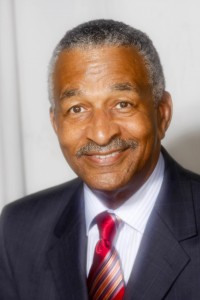
by James Clingman
Picture this headline: “Donald Trump and Bernie Sanders win respective primaries.” Let that Marinate for a moment before reading any further.
Now, what is your reaction? Faced with those two choices, what will you do? For whom will you vote? Will you vote at all? Or, will you go to either (or both) of the candidates and make demands, insisting that unless they support your positions publicly and in writing you will not vote for them? No matter who ends up on the ballot, our choice for President will be based on decisions made by others.
Some people use “deciding” and “choosing” interchangeably, and in some cases that’s fine. But in politics, it’s intellectually dangerous and comes with negative results for the electorate. Remember George Bush’s words, “I am the decider”? That was his way of saying I have the final say. Like the President, the Supreme Court decides; political handlers, donors, and operatives decide. The electorate chooses, with the exception of the 2000 election where the Supremes decided who would be President.
What about Black folks? As I wrote last year (“Spectator Politics”), Black folks do not have a say in who wins Iowa and New Hampshire, which are the primary indicators of who gets the final nomination for President. Why would candidates spend millions of dollars to win those two small states? Iowa has a 91 percent White and 2 percent Black population, and only six electoral votes; New Hampshire has a 93 percent White and 1 percent Black population, and only four electoral votes. By the way, the third state to vote is South Carolina, which has a 28 percent Black population and nine electoral votes.
The bottom-line in this exclusionary process that takes place during the run-up to the Presidential election is this: The majority of the electorate is only left with choosing among, and later between, the candidates decided upon by a hand-full of powerbrokers and opinion leaders.
Listen to the speeches and watch the debates, and you will see a glaring absence of rhetoric about Black issues, such as those listed in the political platform of the One Million Conscious Black Voters and Contributors (OMCBVC). Lip service and posturing are the rules of the day for candidates who want the Black vote. The bar for their response to our needs is insultingly low. Just say, “Yes, Black lives do matter,” and you got Black votes. Just say, “I am for voting rights,” and you lock up Black votes. Just mention “MLK’s Dream, or Rosa Parks’ refusal, or the Selma Bridge, and the Black votes are in the bag—mostly the Democrats’ bag.
Bernie Sanders, according to an article written by Ta-nehisi Coates, said, the likelihood of reparations for descendants of enslaved Africans in America “is nil…I think it would be very divisive.” That’s a real interesting response in that reparations for Jewish people were not deemed “divisive” by Sanders. Barack Obama does not support reparations; Hillary Clinton and all the Republican candidates do not support reparations. So Black folks “ain’t got nothin’ coming.” Surprised? I doubt it.
What do we do? Well, we must first understand that in politics there is a difference between choosing and deciding. Then we must organize ourselves into a “deciding” force rather than continue to be a “choosing” afterthought.
How do we do that? By joining the OMCBVC and reaching a critical mass of Black folks who are willing to play politics to win by leveraging our votes as a bloc, and by combining our financial resources in order to leverage our dollars within the political campaigns of prospective candidates.
Ice cream moguls, Ben Cohen’s and Jerry Greenfield’s support of Black Lives Matter and their ties to Bernie Sanders in Vermont, notwithstanding, Charles and David Koch, Sheldon Adelson, George Soros, and all the rest of the puppet masters whose money controls politics, show us that we have very little decision-making power. What we have at this stage of the game is the ability to choose from the power-brokers’ decisions.
Beyond the superficial, Black folks’ issues are not being discussed by any candidate. But why should the candidates deal with us? They are courting virtually all-White audiences in the two states they want us to believe will ultimately determine our next President. When the game comes to South Carolina it will change a little; we’ll see Black church visits, gospel hymns being sung, and arm-in-arm prayer, which always turns us on and captures our support.
I implore you, if you are a conscious Black voter, to join the movement that is focused on bringing about a significant change in how public policy is determined, go to www.iamoneofthemillion.com and sign up. We must be deciders, not choosers.

Be the first to comment